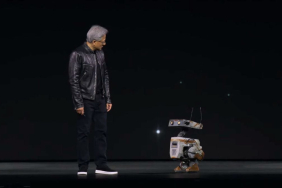Internal documents recently brought to light indicate that Google has reservations about giving publishers the option to exclude their content from AI Search results. According to reports from Bloomberg, Google views this arena as a potential source of revenue, which may have influenced their approach to content usage.
This document, crafted by Google Search executive Chetna Bindra, was shared during the ongoing US antitrust proceedings regarding Google’s dominance in online search. It’s noted that Google holds a significant edge in AI development due to its access to vast search engine data, particularly against competitors such as Perplexity and OpenAI. Nevertheless, Google’s AI-driven features, like AI Overviews and AI Mode, have been observed to harm the traffic of the source websites, leading publishers to consider excluding their content from such summaries if they had the opportunity.
One proposal identified in the documents proposed allowing publishers to prevent Google’s AI models from using their information in real time. However, this would not permit them to entirely opt out of contributing to other AI-related features, such as AI Overviews. Another suggestion, deemed “likely unstable,” recommended that no additional controls be implemented, allowing publishers the option to completely remove their content from Google’s Search index if they were dissatisfied with the current arrangements.
During a court session on May 2nd, it became apparent that publishers are caught in a challenging position. Although Google provided a mechanism for publishers to opt out of AI training in 2023, Google DeepMind’s vice president of product, Eli Collins, confirmed that this only applies to general AI training and not to search-focused AI tools like AI Overviews. To prevent these features from utilizing their content, publishers would need to withdraw their websites from Googlebot’s crawl, effectively removing their sites from Search entirely.
Upon the rollout of AI Overviews last year, Google chose not to publicly announce changes to publisher control options. According to the internal document, the guidance for communicating these updates aimed to obscure the specifics of what publishers were opting out of, concealing the distinctions among various AI functionalities including those for Gemini and AI Overviews.
Bindra noted in the document, “Do what we say, say what we do, but carefully.”
In response to the revelations, a Google spokesperson stated that the document represents preliminary options under consideration during the evolution of AI search and does not reflect the final decisions made by the company. “Publishers have always controlled how their content is made available to Google,” spokesperson Peter Schottenfels expressed, adding that improved AI features like AI Overviews have resulted in increased searches, thereby creating fresh opportunities for online discovery.
The current information shared by Google is more explicit, clarifying that publishers who choose to restrict their content from AI Overviews and AI Mode will also exclude it from “all forms of search results.”







